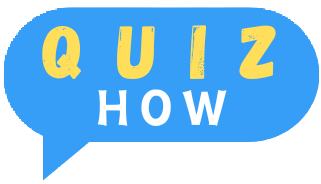In today’s fast-changing job market, keeping up means constantly growing your skills. Whether you’re just starting out or aiming for a promotion, knowing which skills to focus on is key to your success. But how do you figure out which ones are most important for your career growth?
This guide will walk you through the top career skills you need and includes a fun quiz to help you discover where to focus your efforts. Before we jump into the quiz, let’s talk about why developing your skills is so important and which ones can really make a difference in your professional life.
Understanding the Importance of Career Skills
Career skills aren’t just tools for your job—they’re the foundation of your professional growth. Having the right mix of skills can unlock new opportunities, boost your productivity, and make you more valuable to your company. These days, employers want candidates who not only have technical know-how but also strong soft skills like communication, problem-solving, and adaptability.
In today’s competitive job market, being good at just one thing isn’t enough. Employers appreciate versatility, a quick learning curve, and the ability to adapt to change. That’s why continuous learning and skill development are essential, not just a nice-to-have.
What Are the Key Career Skills?
Before you take the quiz, it’s helpful to know the two main types of skills that can impact your career: hard skills and soft skills. Understanding these categories will give you a better idea of where to focus your efforts.
Hard Skills: Technical Expertise

Hard skills are the technical know-how and expertise you need to get specific tasks done. You usually pick these up through education or training, and they’re key for jobs that require specialized knowledge. Here are some examples of hard skills:
- Data Analysis: Being able to interpret and analyze data is crucial in fields like finance, marketing, and healthcare.
- Programming: If you’re in IT, software development, or engineering, knowing how to code is a must.
- Project Management: Successfully managing projects often involves understanding methodologies like Agile or Six Sigma.
- Financial Management: Knowing financial principles is important for roles in accounting, finance, and management.
- Technical Writing: Clearly communicating complex ideas through documentation is essential in engineering, research, and IT.
Soft Skills: Interpersonal Abilities
Soft skills might be harder to measure, but they’re just as important. These are the personal qualities that help you work well with others and adjust to different work settings. Some key soft skills include:
- Communication: Whether you’re speaking or writing, clear communication is crucial for teamwork and leadership.
- Problem-Solving: Being able to think critically and solve problems is highly valued in any industry.
- Adaptability: In today’s fast-paced job market, being flexible helps you succeed in new and challenging situations.
- Time Management: Managing your time well and prioritizing tasks is key to staying productive.
- Emotional Intelligence: Understanding your own emotions and empathizing with others boosts teamwork and leadership.
Emerging Skills in the Modern Workplace
As technology and the global economy continue to change, new skills are becoming more important. Here are some emerging skills professionals should consider developing:
- Digital Literacy: Being able to use digital tools is now a basic requirement in most jobs.
- Remote Collaboration: With more people working remotely, being skilled in virtual communication and project management is crucial.
- Cultural Competence: As workplaces become more diverse, understanding and respecting different cultures is essential for global business.
- Sustainability Awareness: Companies committed to corporate social responsibility value knowledge of sustainable practices and environmental impact.
- Artificial Intelligence and Automation: Understanding AI and how it’s used can give you a competitive edge in industries like tech, manufacturing, and finance.
Take the Quiz: What Career Skills Do You Need to Develop?
Now that you’ve got a good grasp of the key skills needed for career success, it’s time to figure out which ones you should work on. This quiz is here to help you pinpoint your strengths and areas where you can improve. Answer the following questions honestly for the best results.
Question 1: How do you handle tight deadlines at work?
- A) I stay calm and manage my time well to meet the deadline.
- B) I often feel stressed but eventually get the job done.
- C) I usually need help from others to meet the deadline.
Question 2: How comfortable are you with learning new technology?
- A) I quickly adapt to new tools and technologies.
- B) I can learn, but it takes time and effort.
- C) I find it challenging and prefer sticking to what I know.
Question 3: How do you approach problem-solving in your job?
- A) I enjoy tackling problems and often come up with creative solutions.
- B) I can solve problems but usually stick to tried-and-true methods.
- C) I struggle with problem-solving and often need assistance.
Question 4: How do you rate your communication skills?
- A) I communicate clearly and effectively, both in writing and speaking.
- B) My communication is good, but I sometimes have trouble expressing my thoughts.
- C) I often struggle with communication and find it hard to convey my ideas.
Question 5: How adaptable are you to change in the workplace?
- A) I embrace change and quickly adjust to new situations.
- B) I can adapt, but it takes time for me to get comfortable.
- C) I resist change and prefer routine.
- Also Read: Assess Your Lifestyle: Take the Health Quiz

Quiz Results: Identifying Your Career Skill Needs

Now, add up your answers:
- Mostly A’s: You’ve got a strong foundation of essential career skills. To keep progressing, focus on sharpening these skills and picking up new ones like digital literacy and cultural competence.
- Mostly B’s: You have a solid skill set but could use some targeted improvement. Think about working on your adaptability and time management to boost your overall effectiveness.
- Mostly C’s: It’s time to prioritize building your skills. Start with the basics, like communication and problem-solving, and then gradually work your way up to more technical or emerging areas.
How to Develop Your Career Skills
After taking the quiz, you might be wondering how to start improving your skills. Here are some easy steps to help you develop your career skills:
- Take Online Courses: Websites like Coursera, Udemy, and LinkedIn Learning have lots of courses to help you build both hard and soft skills.
- Find a Mentor: Look for someone in your field who can guide you, give you feedback, and support your skill development.
- Practice Regularly: The more you practice, the better you get. Set aside time each week to work on specific skills through projects, volunteering, or simulations.
- Attend Workshops and Seminars: Get hands-on experience and network with others by joining professional development events.
- Read Widely: Keep up with industry trends, new technologies, and best practices by reading books, articles, and reports.

Discover more from QuizHow
Subscribe to get the latest posts sent to your email.

